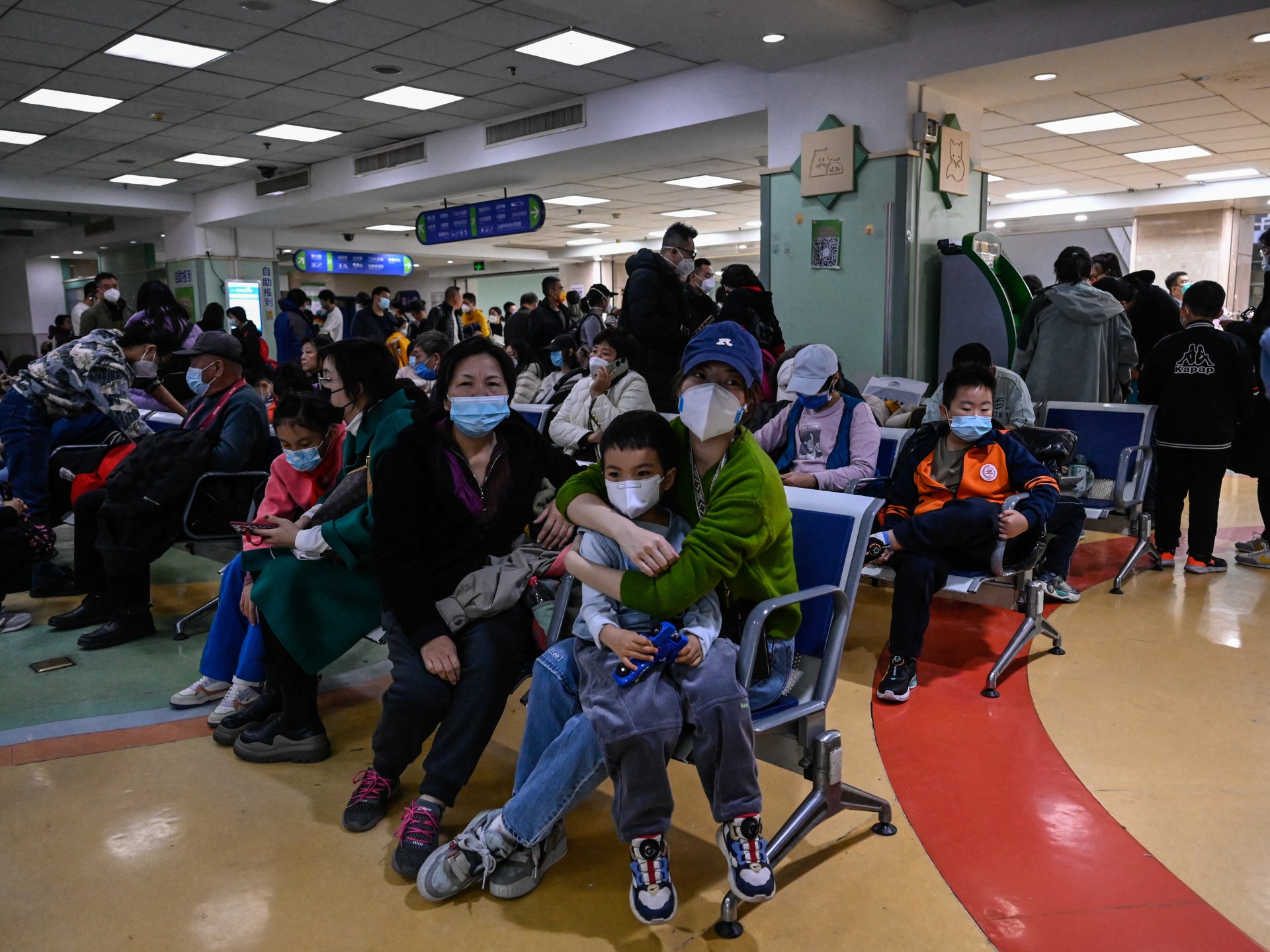
For seven years, Sulemana Musah poured almost every bit of money he had into his war against hepatitis C.
His student loans for graduate school, his salary from his job as a high school teacher, and the money he made from a part-time job selling sweet potatoes went toward testing and medication to try to cure the virus that was killing him had weakened. Mr Musah, 27, who lives in Accra, Ghana’s capital, has put aside his dreams of starting a business, building a house and getting married.
He scraped together enough money — $900, half his annual salary — to afford a course of medication which began a decade ago to revolutionize hepatitis C treatment in the United States and other high-income countries.
He was the rare patient for whom this treatment was not enough, and so he tried unsuccessfully for years to save enough for another. “I was just waiting for God to work his miracles,” he said.
Then in March his doctor gave him extraordinary news: the Ghanaian government had received a donation of medication for hepatitis C. He was able to receive treatment free of charge. Within weeks, Mr. Musah had the pills. In October, a blood test showed he was finally cured.
He was broke, exhausted – and ready to give up on his ambitions.
The donation came from a most unlikely source: Egypt, which just a few years ago had the highest hepatitis C burden in the world. An estimated one in ten people, around nine million Egyptians, were chronically infected. In a public health campaign extraordinary in both its scope and success, Egypt screened its entire population, brokered a deal for deeply discounted drugs and cured almost everyone with the virus.
“This is one of the greatest achievements in public health,” said Dr. John W. Ward, director of the Coalition for Global Hepatitis Elimination at the Task Force for Global Health.
Egypt is on track to be the first country to meet the World Health Organization’s goal of eliminating hepatitis C, and it is using this victory to launch a campaign of “health diplomacy” by pledging to donate medicines and expertise share, with the aim of treating one million African patients. This is an unusual gesture in the world of global health, where generosity typically flows from high-income countries to developing countries.
“The Egyptian government saw an opportunity to extend its expertise beyond its borders and contribute to global health efforts,” said Khaled Ghaffar, Egypt’s Minister of Health and Population. “This health diplomacy allows Egypt to leverage its success in hepatitis treatment for the benefit of humanity while enhancing its standing in the global community.”
According to the WHO, about 58 million people worldwide are chronically infected with hepatitis C, and the vast majority – 50 million – live in low- and middle-income countries. Four out of five people do not know that they have the disease. Each year, approximately 300,000 people die from complications, particularly liver cirrhosis and liver cancer.
The virus is most commonly transmitted through blood; In high-income countries, transmission often occurs through unsanitary needles used to inject medications, while in developing countries transmission often occurs in healthcare settings, either through unsterilized needles and instruments or through cuts made by traditional healers. About a third of people clear the infection on its own, but in most people it is chronic and slowly damages the liver over time.
Yet few countries include the disease in their public health plans or conduct testing to determine the number of infected people. Hepatitis C, unlike HIV and malaria, has not been the focus of major international programs and is such a low priority in low-income countries that governments barely track how many people have it, let alone treat it. Until this year, in Ghana, as in other African countries, only a handful of wealthy people had access to hepatitis C treatment and used drugs they purchased privately.
In Egypt the situation was the same until 2007. A mass vaccination campaign that began in the 1950s and used improperly sterilized needles for 20 years had inadvertently spread hepatitis among the population. Few people could afford private treatment. By the time the government decided to launch its national program, the virus was killing tens of thousands of people every year. First, Egypt used two ancient medicines that cured only about half of the patients treated with them. But in 2013, Gilead Sciences Inc. brought an antiviral drug to market – the first cure for a viral infection in the history of medicine.
While the company was charging $1,000 for its once-daily pill in the US, Egypt was negotiating to buy it for $10 per pill – and then arranged for Indian and Egyptian pharmaceutical companies to produce an even cheaper generic version for a licensing fee. Egypt has treated more than four million people and reduced hepatitis C prevalence to just 0.4 percent.
Other companies soon followed with additional antivirals; They have been highly effective, safe and so far not affected by the drug resistance problems that often occur with antiviral drugs.
“The news about the drugs is only good – the problem is that countries are not making the drugs available to people in need,” said Dr. Ward, the coalition’s director.
Egypt chose Ghana as an early partner because the country is investing in building a national healthcare system. Dr. Yvonne Ayerki Nartey, a doctor at Cape Coast Teaching Hospital, joined the Coalition for Global Hepatitis Elimination to develop a plan for Ghana’s new response. She first had to find out how many Ghanaians were infected and where they were; A nationwide survey found that one in 20 people had hepatitis C in the north of the country, an area with higher poverty rates and weaker health services. She went on radio shows and spread the word via Facebook and WhatsApp that treatment might soon be available.
Medicine was on the way from Egypt, but the next step was difficult: While in the United States a liver specialist would treat hepatitis, there are fewer than 20 hepatologists in Ghana. Dr. Nartey organized training courses for doctors in each district.
“Most people have never treated hepatitis C because there is no treatment here,” she said.
Most of the new treatment sites were teaching hospitals in regional centers, but she insisted on a pilot project in a rural hospital in a remote northern region, knowing that if Ghana truly wanted to eradicate the disease, frontline staff would have to do it those who carry out the treatment. At the rural site, patients were examined, tested, and admitted within a week.
Testing remained a problem: Only private laboratories offered the viral load tests necessary to track hepatitis treatment, charging several hundred dollars per test. Dr. Nartey has registered 340 patients for possible treatment, but only 290 of them have been able to raise the funds for the viral load test they need to start. The new hepatitis program negotiated a lower rate that promised a steady flow of patients, but at about $80 per test, this remains the program’s biggest challenge.
For patients who had lived not only with the financial cost of the disease but also with fear and anxiety as their loved ones died of liver disease, the news of free treatment was almost unbelievable.
Mr. Musah first began feeling ill when he was a high school student living in a small northern town. Unable to explain his back pain and feverish nights, the hospital near his home had him tested for everything from a milk allergy to syphilis to HIV. After hundreds of dollars’ worth of tests, he finally received a hepatitis diagnosis – but was told he needed a specialist hospital to help him. He traveled to Accra where doctors said there was medication available but he would have to pay for it.
In March, he and other hepatitis patients attended a celebration at a hotel in the capital where the Egyptian ambassador opened the free treatment program. But his challenges weren’t over yet. He needed expensive viral load tests to confirm the treatment was working; In September he was faced with the choice of taking out a new student loan to pay the tuition fees for a master’s degree or for the exam.
By expanding the program across Ghana, Dr. Nartey, to screen two million people with a cheaper antigen test that costs about a dollar per patient, then measure the viral load for the 200,000 people she expects to have antibodies and confirm an active infection, and at the end 46,000 patients can be treated with the first tranche of medicines promised by Egypt. Their prevalence study suggests that an additional 300,000 patients will need to be treated as a result.
“It’s a lot, but we’re ambitious,” she said.
Egypt is working to establish parallel hepatitis C programs in other countries, including Chad and Sudan.
At the same time, Ghana is improving blood safety and injection practices, drawing on lessons from Egypt and training traditional healers to reduce the rate of new infections, Dr. Ward.
He hopes that if Ghana manages to expand its hepatitis program, it will encourage neighboring countries to start their own program.
“We have to make it clear to countries that medicines exist and that they are so effective,” he said. “We should be on the warpath to eradicate hepatitis C because it is so feasible.”
Mr Musah said when he received the news that he was finally virus-free, it was like the start of a whole new life: no longer having to spend every day wondering how he would be able to pay for medicine or tests, or whether he would could do it before the virus killed him.
“Now I have the freedom to plan my future,” he said.






Recent Comments